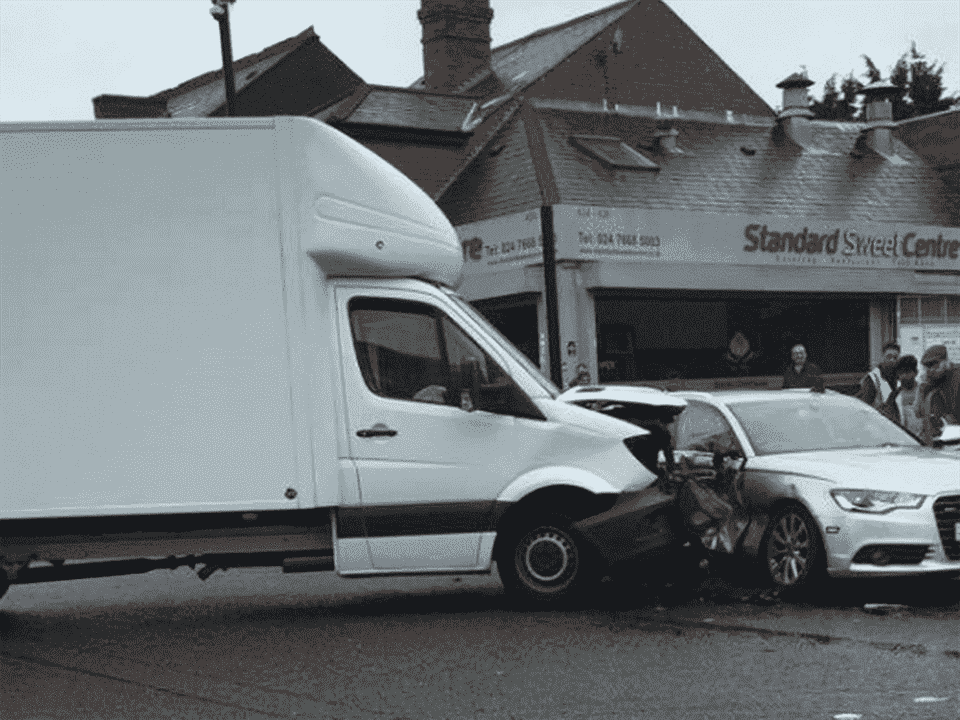In the unfortunate event of a car accident, securing the services of an experienced El Paso car accident lawyer is crucial for navigating the legal complexities and maximizing your compensation. Our comprehensive guide delves into the intricacies of choosing the right attorney, building a strong case, negotiating settlements, and navigating trial procedures.
Understanding the legal landscape governing car accidents in El Paso is paramount. Specific laws and regulations dictate the rights and responsibilities of those involved in such incidents. Victims may be entitled to various forms of compensation, including medical expenses, lost wages, and pain and suffering.
Understanding the Legal Landscape for Car Accidents in El Paso

In the unfortunate event of a car accident in El Paso, it is crucial to have a comprehensive understanding of the legal framework that governs such incidents. This framework comprises a complex web of laws and regulations that dictate the rights and responsibilities of drivers, passengers, and other parties involved.
Applicable Laws and Regulations
The primary legislation governing car accidents in Texas is the Texas Transportation Code. This code establishes the rules of the road, including speed limits, right-of-way regulations, and other traffic laws. Additionally, the Texas Civil Practice and Remedies Code provides legal remedies for victims of car accidents, outlining the procedures for filing lawsuits and seeking compensation.
Types of Compensation
Victims of car accidents in El Paso may be entitled to various types of compensation, depending on the severity of their injuries and the circumstances of the accident. These may include:
- Medical expenses: Compensation for past, present, and future medical bills related to the accident.
- Lost wages: Compensation for income lost due to the inability to work as a result of the accident.
- Pain and suffering: Compensation for the physical and emotional pain and suffering caused by the accident.
- Property damage: Compensation for damage to the victim’s vehicle or other personal property.
- Wrongful death: Compensation for the loss of a loved one in a fatal car accident.
Building a Strong Car Accident Case
In the aftermath of a car accident, building a strong case is crucial for protecting your rights and obtaining fair compensation. This involves gathering evidence, preparing for trial, and presenting a compelling case to the court or insurance company.
Gathering Evidence
Thorough evidence gathering is essential for establishing liability and damages. Obtain a police report, which provides an official account of the accident. Medical records document your injuries and treatment, while witness statements corroborate your version of events. Additionally, take photos of the accident scene, your vehicle damage, and any visible injuries.
Preparing for Trial
If negotiations with the insurance company fail, you may need to file a lawsuit. This requires preparing a complaint outlining your legal claims and damages. Hire an experienced attorney to guide you through the legal process, gather evidence, and build a persuasive case.
Presenting a Compelling Case
At trial, your attorney will present evidence to support your claims, including police reports, medical records, witness testimony, and expert opinions. They will argue the negligence of the other driver and the extent of your damages. Your attorney will also negotiate with the insurance company to reach a fair settlement.
Negotiating and Settling Car Accident Claims: El Paso Car Accident Lawyer

Negotiating and settling car accident claims is a complex process that involves several steps and considerations. It is important to understand the legal landscape and your rights as a victim of a car accident. This guide will provide an overview of the negotiation and settlement process, including factors that influence settlement amounts and tips for maximizing the value of your claim.
After a car accident, you may be entitled to compensation for your injuries, property damage, and other losses. The amount of compensation you receive will depend on several factors, including the severity of your injuries, the extent of your property damage, and the amount of insurance coverage available.
It is important to remember that insurance companies are for-profit businesses that will try to minimize their payouts. Therefore, it is important to be prepared to negotiate with the insurance company to get a fair settlement.
Factors That Influence Settlement Amounts
- Liability:Who was at fault for the accident? Determining liability is crucial as it affects who is responsible for paying compensation.
- Damages:The extent of your injuries and property damage will impact the settlement amount. Medical bills, lost wages, and pain and suffering are common types of damages considered.
- Insurance Coverage:The amount of insurance coverage available will limit the settlement amount. It is important to know the policy limits of the at-fault driver’s insurance policy.
- Negotiation Skills:Your ability to negotiate effectively can significantly impact the settlement amount. Being prepared, knowing your rights, and having a strong case will help you maximize your recovery.
Tips for Negotiating Effectively
- Gather Evidence:Collect medical records, police reports, and witness statements to support your claim.
- Determine Your Damages:Calculate your medical expenses, lost wages, and other quantifiable losses.
- Know Your Rights:Familiarize yourself with the laws and regulations governing car accident claims in your state.
- Be Prepared to Negotiate:Practice your negotiation skills and anticipate the insurance company’s arguments.
- Consider Legal Representation:If negotiations stall or the insurance company is unwilling to offer a fair settlement, consider hiring an attorney to represent you.
Trial Procedures for Car Accident Cases

Car accident trials involve a series of procedures and legal processes that determine the outcome of the case. Understanding these procedures is crucial for both plaintiffs and defendants.
The trial process typically begins with jury selection, where potential jurors are questioned to ensure impartiality and understanding of the legal issues involved.
Roles of Judge, Jury, and Attorneys
The judge presides over the trial, ensures fairness, and interprets the law. The jury, composed of impartial citizens, determines the facts of the case and renders a verdict based on the evidence presented.
Attorneys for both the plaintiff and defendant present their cases, examine witnesses, and argue their positions before the jury.
Types of Evidence, El paso car accident lawyer
Various types of evidence may be presented at trial, including:
- Witness testimony: Eyewitness accounts and expert opinions provide valuable information about the accident.
- Physical evidence: Photographs, vehicle damage, and medical records offer tangible proof of the accident’s impact.
- Documentary evidence: Police reports, insurance policies, and medical bills provide official documentation of the incident and its consequences.
Conclusive Thoughts

Navigating the aftermath of a car accident can be daunting, but with the guidance of a skilled El Paso car accident lawyer, you can protect your rights, seek justice, and obtain fair compensation. Remember, choosing the right attorney is essential for a successful outcome.